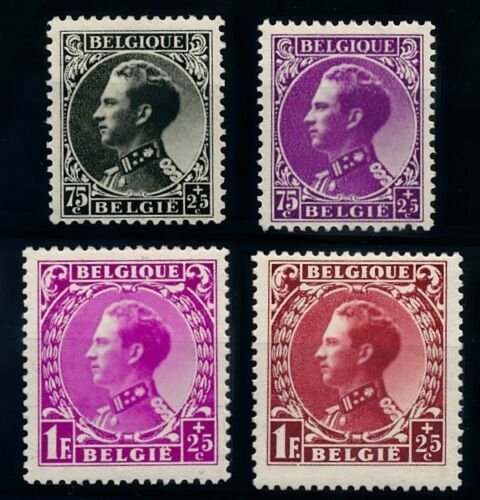Here are some events that happened on September 25th. It could be an event or a person that died or was born on that day
Rømer also invented the modern thermometer showing the temperature between two fixed points, namely the points at which water respectively boils and freezes.
In addition to inventing the first street lights in Copenhagen, Rømer also invented the meridian circle, the altazimuth, and the passage instrument (also known as the transit instrument, a type of meridian circle whose horizontal axis is not fixed in the east-west direction).
In scientific literature, alternative spellings such as "Roemer", "Römer", or "Romer" are common.
Danish stamp depicting Ole Rømer
1849 Died: Johann Strauss I, Austrian composer (b. 1804)
Johann Strauss I (March 14, 1804 – September 25, 1849) was an Austrian Romantic composer. He was famous for his waltzes, and he popularized them alongside Joseph Lanner, thereby setting the foundations for his sons to carry on his musical dynasty. He is perhaps best known for his composition of the Radetzky March (named after Joseph Radetzky von Radetz).
Strauss became deputy conductor of the orchestra to assist Lanner in commissions after it became so popular during the Fasching of 1824 and Strauss was soon placed in command of a second smaller orchestra which was formed as a result of the success of the parent orchestra. In 1825, he decided to form his own band and began to write music (chiefly, dance music) for it to play after he realized that he could also possibly emulate the success of Lanner in addition to putting an end to his financial struggles. By so doing, he would have made Lanner a serious rival although the rivalry did not entail hostile consequences as the musical competition was very productive for the development of the waltz as well as other dance music in Vienna.
He soon became one of the best-known and well loved dance composers in Vienna. During the carnival of 1826, Strauss inaugurated his long line of triumphs by introducing his band to the public of Vienna at the Schwan in the suburb of Roßau where his Täuberln-Walzer (Op. 1) at once established his reputation. He toured with his band to Germany, the Netherlands, Belgium and Britain. The conducting reins and management of this Strauss Orchestra would eventually be passed on to the hands of his sons until its disbandment by Eduard Strauss in 1901.
On a trip to France in 1837 he heard the quadrille and began to compose them himself, becoming largely responsible for introducing that dance to Austria in the 1840 Fasching, where it became very popular. It was this very trip (in 1837) which has proved Strauss' popularity with audiences from different social backgrounds and this paved the way to forming an ambitious plan to perform his music in England for the coronation of Queen Victoria in 1838. Strauss also adapted various popular melodies of his day into his works so as to ensure a wider audience, as evidenced in the incorporation of the Oberon overture into his early waltz, "Wiener Carneval", Op. 3, and also the French national anthem "La Marseillaise" into his "Paris-Walzer", Op. 101.
Austrian stamp issued to commemorate Johann Strauss I
1897 Born: William Faulkner, American novelist and short story writer, Nobel Prize laureate (d. 1962)
William Cuthbert Faulkner (September 25, 1897 – July 6, 1962) was an American writer and Nobel Prize laureate from Oxford, Mississippi. Faulkner wrote novels, short stories, screenplays, poetry, essays, and a play. He is primarily known for his novels and short stories set in the fictional Yoknapatawpha County, based on Lafayette County, Mississippi, where he spent most of his life.
Faulkner is one of the most celebrated writers in American literature generally and Southern literature specifically. Though his work was published as early as 1919 and largely during the 1920s and 1930s, Faulkner's renown reached its peak upon the publication of Malcolm Cowley's The Portable Faulkner and his 1949 Nobel Prize in Literature, making him the only Mississippi-born Nobel winner. Two of his works, A Fable (1954) and his last novel The Reivers (1962), each won the Pulitzer Prize for Fiction. In 1998, the Modern Library ranked his 1929 novel The Sound and the Fury sixth on its list of the 100 best English-language novels of the 20th century; also on the list were As I Lay Dying (1930) and Light in August (1932). Absalom, Absalom! (1936) appears on similar lists.
US Stamp depicting William Faulkner
1983 Died: Leopold III of Belgium (b. 1901)
Leopold III (3 November 1901 – 25 September 1983) was King of the Belgians from 1934 until 1951, when he abdicated in favor of the heir apparent, his son Baudouin. From 1944 until 1950, Leopold's brother, Charles, served as prince regent while Leopold was declared unable to reign. Leopold's controversial actions during the Second World War resulted in a political crisis known as the Royal Question. In 1950, the debate about whether Leopold could resume his royal functions escalated. Following a referendum, Leopold was allowed to return from exile to Belgium, but the continuing political instability pressured him to abdicate in 1951.
Leopold was born in Brussels and succeeded to the throne of Belgium on 23 February 1934, following the death of his father King Albert I.
Some stamps issued by Belgium depicting King Leopold III







No comments:
Post a Comment